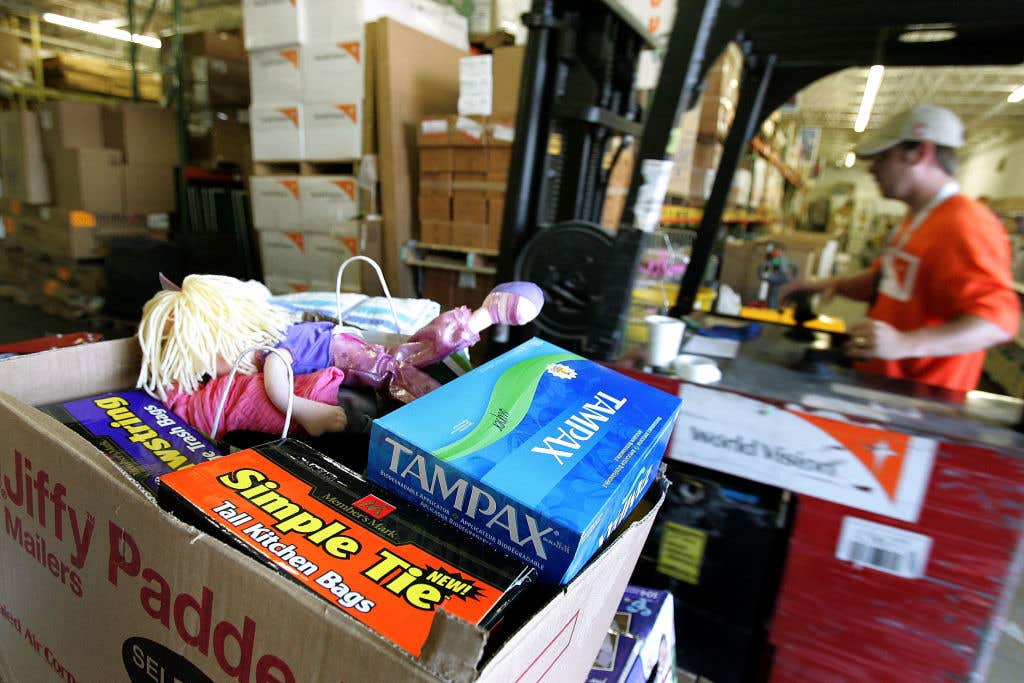
CHICAGO – SEPTEMBER 13: World Vision worker, Jason Humbles, operates his forklift past a box of items such as kitchen bags, trash bags, a child’s doll and Tampax, in a World Vision warehouse, which are all destined for Hurricane Katrina victims September 13, 2005 in Chicago, Illinois. Working through numerous community and church-based organizations, the World Vision’s Chicago offices are collecting much needed items such as school supplies, personal hygiene items and other items for victims of Hurricane Katrina. (Photo by Tim Boyle/Getty Images)
Stock up on food supplies (3-7 day supply) including:
- Drinking water: one gallon per person per day
- Non-perishable foods
- Juice/soft drinks/instant coffee or tea
- Camp stove or grill for outdoor use only
- Paper plates, cups, utensils
- Aluminum foil
- Cooler for food storage and ice
- Lighter/matches, pots/pans
- Plastic/zip-lock bags/garbage bags
- Manual can opener or pop-top cans/containers
Read up on these guides provided by USDA and Food Safety on how to freeze food, food safety, and how to discard your perishable foods.
Consider having these personal items at the ready:
- Sleeping bags, pillows, blankets
- Lawn chairs, folding chairs, cots
- Hygiene items (toothbrush, soap, deodorant, denture care, sanitary pads, etc)
- List of emergency contact information
- Prescriptions and over the counter meds if necessary
- Spare glasses, contacts, and/or cleaning solution
- Extra hearing aid batteries
- Baby/infant needs (diapers, formula, extra clothes, etc)
- Rain gear, hot and cold weather clothing
- Closed-toe work shoes
- First aid kit
- Bucket with tight fitting lid for emergency toilet
- Toilet paper, paper towels
If needed, basic tools such as these:
- Hammer, wrenches, screwdrivers, pliers, etc.
- Specialized tools for water and gas valves
- Plastic tarps with grommets or roll plastic sheeting
- Assorted screws, nails or other fasteners
- Duct tape
- Canvas or leather work gloves
These miscellaneous items you don’t want to forget:
- Spare keys to your home or vehicles
- ID such as your driver’s license or insurance card
- Cash, credit cards, coins or checks
- Prepaid telephone cards
- Pens, pencils and paper
- Maps and evacuation information
- Keepsakes, significant photos/documents
- Books, games and other quiet entertainment





